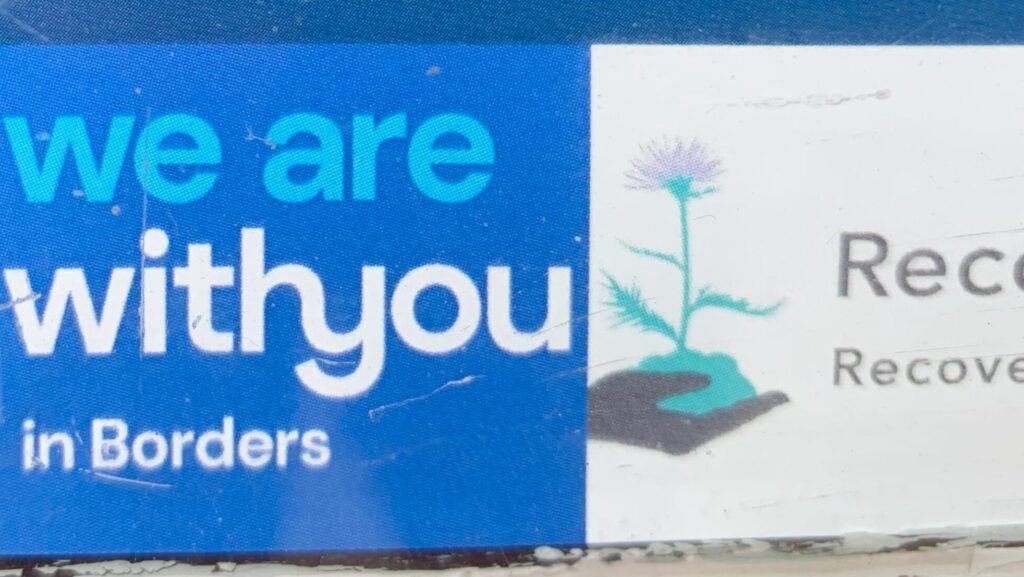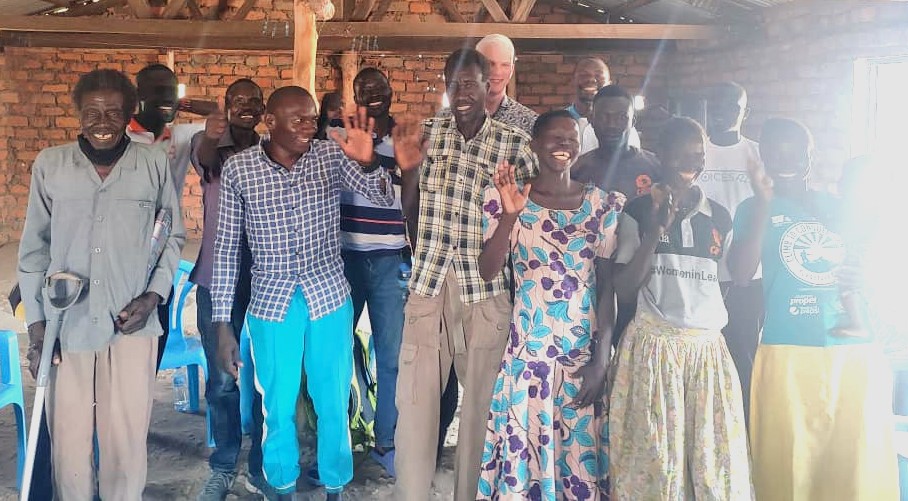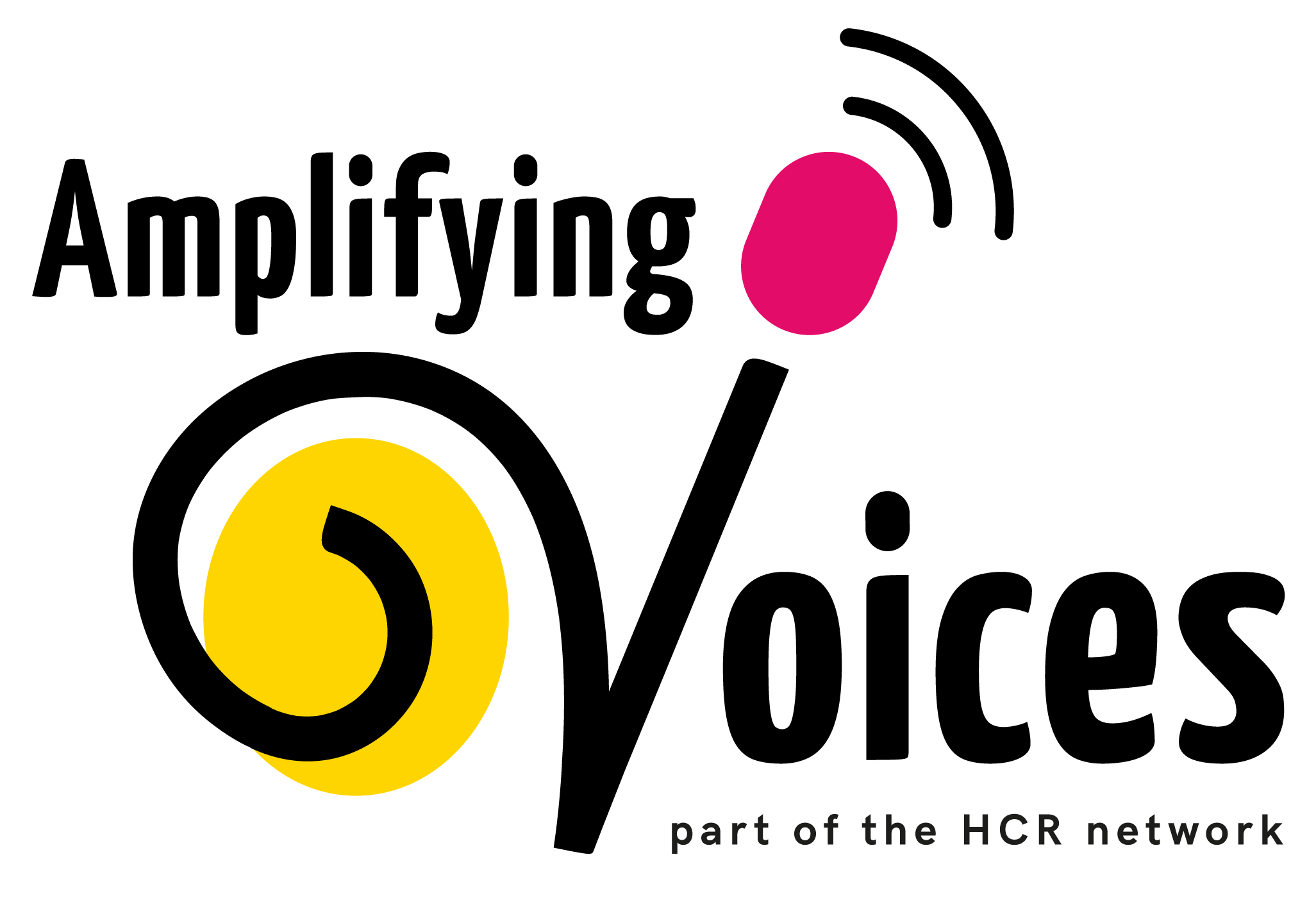
Connecting people aids trauma recovery
Warning: This article talks about causes of trauma that could be distressing to read.
As I start to write this article, I can see a sign in our office window advertising a Recovery Café. The poster quotes Johann Hari: “The opposite of addiction is not sobriety; it’s connection”, and the strapline is “We Are With You”. The sign reminds me of what Soot Semee listeners had to say about the importance of connection. Listeners I met when I visited the Soot Semee project in Northern Uganda, told me that Soot Semee helped them with trauma recovery by encouraging listeners to build connections with others.

I have to admit, I sometimes struggle to imagine how community-led radio could be effective in such a complex topic as trauma healing. I’m probably not alone in that.
So when this listener told me her story, I was encouraged and also a bit curious …
“Before Soot Semee, I was one person who could just be sitting on my veranda and I could just be crying. But now, I started listening to Soot Semee, and I heard messages that were able to help my heart.”
You couldn’t help but feel moved by her story. I also wondered how the radio programmes had had such a deep effect.
You can certainly imagine a radio programme being effective in other areas of health. For example a presenter can provide parents with instructions on how to treat children’s diarrhoea using home-made oral rehydration salts. But a radio presenter cannot similarly say, “today we tell you how to make a medicine that heals trauma.”
Trauma is described as:
“events or circumstances experienced by an individual as physically or emotionally harmful or life-threatening, which result in adverse effects on the individual’s functioning and well-being”.[1]
It is deeply individual, and often sub-consciously experienced. One person may try to feel better through substance misuse, another may withdraw from social interaction. Still others may show no external effect until something or someone triggers the same feelings of fear or harm as in the original event. South Sudanese refugees have faced community violence and war which in itself leads to many different causes of trauma. Many South Sudanese women have been subjected to rape or other sexual violence by armed groups[2]. Others may have witnessed the murder of friends. Forced separation from family and an unwanted move to a new country also causes trauma. The broad range of causes and effects can make trauma recovery very complex. Despite the complexity, the listeners shared some observations from their recovery journeys.
The woman above continued her story:
“And I could now be joined by other people. Initially I was that person who used to sit alone but now, with the coming together as a group I work together and this helps me so much. Initially I always prayed is there someone who will sometime listen to some of the issues that we go through.”
Another man spoke and said:
“All these years I have been staying here, just like a tree that is not having leaves. I am one person when I sit at my place, just alone, I feel there is nothing anymore, I am just alone. But when this radio* came, I felt like I saw Jesus with my eyes. I used to have a lot of thoughts and trauma, but now, all these thoughts have vanished.”
As I say, I was curious. What was it about the radio programmes that they had this effect? After the group finished sharing their stories I came back to this question. The first woman told me:
“Some of the programmes have advice about trauma, and others call the people to come together and share their issues as a group. When you are alone it is very hard, but when you hear from someone’s experience it helps a lot.”
I heard other stories from the listeners who tried to cope with trauma using alcohol, or violence. Each of them told a story of feeling like they were alone, but through the radio programmes, or being invited to join a listener group, they began to reconnect with people and feel valued.
People working in trauma-informed practice talk about the importance of safety, trust, collaboration and connection in supporting people suffering from trauma[3]. Soot Semee’s Council of Reference, the listener groups, and our partners Community Development Centre, who helped Omugo community create the Soot Semee programmes, are working hard to create this safe environment for reconnecting.
I’m learning that trauma recovery is a journey, perhaps best travelled with others. It seems like the Soot Semee folks are also living out the strapline “We are with you”.

Getting to know a Soot Semee listener group, Omugo 4, Uganda. Feb 2023
* Soot Semee provides weekly programmes as MP3 files. Listener groups listen to the programmes on Speakerboxes, or digital audio players. The Omugo community members call Soot Semee a radio programme, and call the speakerboxes, radios.
